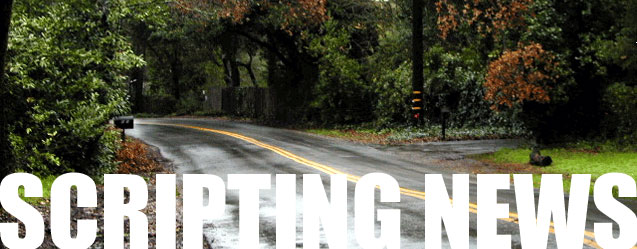
 Speaker for the Dead
Speaker for the Dead I just finished my third Ender book, Speaker for the Dead.
It's sooooo good, so rich -- what a story and what characters! Oh my god.
Anyway, the part I'm thinking about right now is where the speaker tells the truth and how the story keeps unfolding and twisting and turning, and we're hearing some of it for the first time along with the other characters, and some of it we already know (but they don't).
 What's remarkable is how transformative the truth is. How perspectives shift, and how people who were stuck become unstuck. No need to say any more than that, don't want to be a spoiler. But this is an idea everyone should consider. How are you not speaking your own truth, what are you not telling yourself. As much as you don't want to look at it, you will be better off if you do.
What's remarkable is how transformative the truth is. How perspectives shift, and how people who were stuck become unstuck. No need to say any more than that, don't want to be a spoiler. But this is an idea everyone should consider. How are you not speaking your own truth, what are you not telling yourself. As much as you don't want to look at it, you will be better off if you do.
What's next? Xenocide, of course. ![]()
 Not blaming anyone
Not blaming anyone I wanted to ask Fred Wilson this question: "What happens to your users' tweets, blogs, podcasts, check-ins, discussion threads, Scrabble games, photos when the companies go out of business?"
I did ask the question. He answered. And that's done.
A number of people jumped to a conclusion about why I was asking it, and took it to mean something that it didn't mean.
I just wanted to get the answer, and I wanted people's attention.
The answer is this -- even though Fred didn't say it -- it's true anyway.
When the companies go out of business your data is gone.
 The time to talk about this, openly, publicly, without fear is before it's gone.
The time to talk about this, openly, publicly, without fear is before it's gone.
I'm telling you. I speak from experience. People take this stuff very personally. If the pioneer users in 2004 didn't see it coming, and didn't prepare for it, today's users especially won't see it coming. If you want to have an industry left after companies fail, we need to start doing something about this.
The companies aren't doing it. If anyone would know about it, it would be Fred, because he uses so many of the products the way they were intended to be used. Because he is both influential, very widely listened-to, and is respected as a user if he says there's a problem people will hear it.
I don't expect him to get on a podium and start talking about it, but I would be happy if he did. I just wanted, for now, to establish this as a good question, and one that there should be an answer for, and there isn't one.
PS: There are also some good comments in this earlier thread.
 An open Twitter-like ecosystem
An open Twitter-like ecosystem I should probably call this something other than a Twitter-like ecosystem, but that's what it is -- and that's the only thing to call it.
There's been a lot of discussion lately about whether a for-pay or ad-supported model works better. What's been overlooked is that there's a third option. Use the web.
 It turns out that most of what's needed for something open that functions like Twitter is already out there, deployed, standardized, widely supported. There are a few things that need to be created, but not many.
It turns out that most of what's needed for something open that functions like Twitter is already out there, deployed, standardized, widely supported. There are a few things that need to be created, but not many.
I've got implementations of all of them. People are welcome to be plug-compatible. What I recommend is that no one try to do it all. That people pick off a component and try to do the best one possible, and connect up with the other components.
I've got some good stuff. Been working on it for a couple of years. I think you could do worse than having your networking stuff connect with mine.
1. For tweets, I use RSS 2.0 with the microblog namespace. My items don't have titles, because tweets don't have titles. So no Google Reader in this network, unless the adapt to feeds with items with no titles. The software I use for linkblogging is Radio2.
2. To read stuff, I like the river of news approach, always have. That happens to be more or less exactly how Twitter does it. There's a JSON format that defines what a river is. We had an open project a while back to create a browser for this format. I suggest if you're going to do a river, that you be plug-compatible with this JSON. Might as well have a little coral reef right there. My river software is River2.
3. To identify users -- please use DNS. It scales great. It's deployed everywhere. Amazon has Route 53 which is like a gift from heaven. Use DNS. I know it's hard, so let's make it easy. Look at current DNS tools as you would a command line interface. You can simplify it. I know you can! (I did...)
4. A user is a feed. So the name points to a feed.
5. I use the cloud element in RSS 2.0 for pub-sub. Works great.
6. I think the part that's hard to scale is the notification. But the fallback is to poll. It's slow. Twitter will always be faster than the open system. But this will plug together like LEGO in ways Twitter never will. Unless they take this seriously, which they won't (they shouldn't).
6a. Twitter will always be faster, until they go down. I like to point out that RSS has never gone down once, and never will. Decentralized systems have that feature. It's a good one.
7. This will be like an editorial system that users can lurk on. (And use both ways.)
8. BTW, it has to hook into Twitter. Key point. The thing that's kept the other networks from working is that they don't peer with Twitter. Luckily this is in keeping with the new Twitter mandate of putting stuff in but not taking stuff out. Great. If you want to read what someone says on Twitter you have to use Twitter. Not a big deal it turns out.
I'm sure I'll add more items to this list, and hot-up the names to the docs and software. In the meantime I have to admit even to me it sounds pretty exciting and I've been immersed in this for quite some time.
PS: I wrote this on Wednesday night. It's a coincidence that Twitter went down on Thursday.
 Next thing for Twitter... a CMS
Next thing for Twitter... a CMS This came to me in a dream rececently.
Software is a process, it's never finished, there's always more coming.
In this case, Twitter surely will add a content management system that allows them to host full stories.
They'll pick the story up from "partner" sites. You may have to do some kind of cross-promotion to qualify. If you put their logo on your site, for example, they'll give your content a better look for people on Twitter.
The template is up to you. For now at least. Later there might be some requirements. An approval process, like the way Apple approves apps. A "sandbox." Yes there will be ads on the page. And a revenue-share. Maybe 60-40, like the app store?
Since China already has their own Twitter, your stories probably won't have to be approved by the Chinese censors. But who knows who else might have a say in what kind of content constitutes partnership.
Google will offer the same deal, but only if you don't partner with Twitter. Same with Twitter re Google.
The 140-char limit still applies to you and me. For partners, a distant memory.
Anyway that's how it looks to me. ![]()